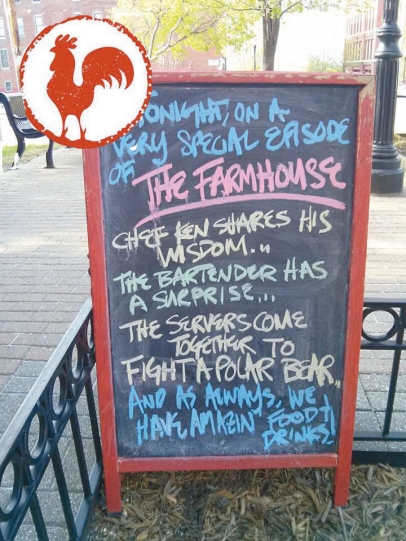Farm to Table: Who’s Delivering to Your Back Door?
In 2012, I was a United States delegate to the Slow Food World Food Conference in Turin, Italy. It was a life-changing experience, and I came away with a challenge to grow our local food community. So, when I got the chance to ride along with Alicia Ellingsworth of Cultivate Kansas City’s Gibbs Road Farm in June on her produce delivery route to local restaurants, I jumped at the chance.
I got to the farm about 1p.m. and helped Alicia load the truck. Our first stop was Renee Kelly’s Harvest Restaurant. When we arrived and got out of the truck, just seeing the Cultivate KC truck backed up to the restaurant door was exciting; I was seeing local progress! Alicia knew her way to the kitchen. She was greeted warmly by the sous chef and staff. Renee takes her servers and staff to the farms of her producers and ranchers to learn about the products. After many hugs and hellos, we left their beautiful, fresh produce and were on our way again.
Our next stop was Michael Foust’s Farm House Restaurant in Kansas City. Michael has been buying from local producers since he opened. Visiting local farms to check out the produce himself as it readies for harvest and listing the local sources of the food served in his restaurant on huge chalkboards are evidence of his devotion to local farmers and ranchers. As we unloaded the produce and walked into the back door of the restaurant, we found the same scene. Alicia knew all of the kitchen staff; they were old friends.
Next was the Webster House where Executive Chef Matt Arnold greeted us. He was having a staff meeting, but took the time to get his produce delivery for the dinner that evening. Not only does the Webster House use locally grown produce, they also have their own herb garden.
Having delivered to the restaurants for the day, we still had CSA shares to deliver to other customers. En route, I talked to Alicia about the importantance of delivering directly from farm to consumer. Removing the middleman through this type of direct purchasing maximizes the profit for farmers. In addition, direct delivery reduces the time from farm to table, resulting in optiumum freshness, flavor, and nutrition.
Farmers like Alicia and others at Cultivate KC work long hours, sometimes in extreme weather, to keep up with planting, watering, weeding, and harvesting. The investment required to supply locally produced food is immense. Not only is there commitment to the production process, but there is also commitment to the essential partnership between farmer and chef; it is through their conversations that they determine what and how much to plant. This cooperative planning truly is what lies behind a local food economy.
There are many more restaurants in the Kansas City area that buy direct from producers. In fact, many of the best chefs in the Metro are committed to buying direct from farmers. I have seen Michael Smith at the Overland Park Farmers’ Market early in the morning looking for squash blossoms to use in a dish to serve that night. That is just how the great chefs in Italy, France and Spain do it; they shop at farmers’ markets, know their farmers personally, and buy from them for years.
My wife, Christine, and I are committed to buying local for Casa Somerset Bed & Breakfast. We now buy directly from the producer at least half of the time and are rasing that bar as we find new suppliers.
Buying locally is a commitment to giving your family and customers the best available products; it is a commitment for both now and the future. Feeding our community and families can’t be solely about the cost, but also must include what are you leaving for others. As a restaurant owner, chef, or consumer, take time when making each purchase and ask if it supports our local food community. It’s time to get on board with the food revolution.
“The shorter the chain between raw food and fork, the fresher it is and the more transparent the system is.”
Joel Salatin




